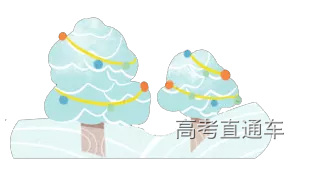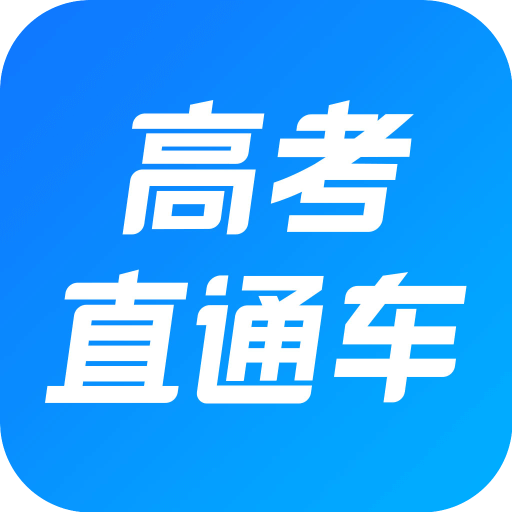一说到时态,很多高中生面对 do,doing,did,done,had done·····一大堆长得差不多的字符,完全分不清!
可时态作为英语的基础项,又不能丢在一边不管不顾。在语法体系里,时态看起来变来变去很容易混淆,其实只是因为学生的脑子里对时态还没有清晰的理解和差异化分类,在对应的语境里也就不知道该用什么时态。
以下为时态教学使用中的一张图 ,理清这张图,发现时态其实很简单。

(do/does; is/am/are)
① 表示现在的情况、状态或特征。
例:He is a student.
他是一个学生。
② 表示经常性、习惯性动作。
例:He always helps others.
他总是帮助别人。
③ 客观事实和普遍真理。
例:The earth moves the sun.
地球绕着太阳转。
④ 表示一个按规定、计划或安排要发生的动作。
仅限于某些表示“来、去、动 、停、开始、结束、继续”等的动词,可以与表示未来时间的状语搭配使用 。
常见的用法是:飞机、火车、轮船、汽车等定期定点运行的交通方式。
例:The next train leaves at 3 o'clock this afternoon.
下一趟火车今天下午3点开车。
⑤ 在时间、条件和让步状语从句中经常用一般现在(有时也用现在完成时)表示将的来事情。(即:主将从现原则)
例:I will call you as soon as I arrive at the airport.
我一到机场就会给你打电话
(have/has done)
① 表示动作到现在为止已经完成或刚刚完成,强调对现在产生的影响。
(have/has been doing)
(did; was/were)
(had done)
(would do)
(was/ were doing)
高考英语语法专项训练-时态语态
一、单句填空
1.—Where is Peter?I can’t find him anywhere.
—He went to the library after breakfast and (write)his essay there ever since.
2.—Did you have difficulty finding Ann’s house?
—Not really.She (give)us clear directions and we were able to find it easily.
3.I wasn’t able to hide my eagerness when I (ask),“What do you wish me to do now?”
4.He must have sensed that I (look) at him.He suddenly glanced at me and said quietly,“Why are you staring at me like that?”
5.—Is Peter coming?
—No,he (change)his mind after a phone call at the last minute.
6.—Hi,let’s go skating.
—Sorry,I’m busy right now.I (fill) in an application form for a new job.
7.They made up their mind that they (buy) a new house once Larry changed jobs.
8.The twins,who (finish)their homework,were allowed to play badminton in the playground.
9.Sofia looked around at all the faces:she had the impression that she (see)most of the guests before.
10.Unless some extra money (find),the theatre will close.
11.The water supply has been cut off temporarily because the workers (repair)one of the main pipes.
12.I felt very tired when I got home,and I (go)straight to bed.
13.I didn’t think I’d like the movie,but actually it (be)pretty good.
14.Shakespeare’s play Hamlet (make)into at least ten different films over the past years.
15.We are confident that the environment (improve)by our further efforts to reduce pollution.
16.I feel so excited!At this time tomorrow morning I (fly)to Shanghai.
17.Close the door of fear behind you,and you (see)the door of faith open before you.
18.The three of us (travel)around Europe for about a month last summer.
19.After school we went to the reading room to do some reading,only t o be told that it (decorate).
20.I had wanted to help you last night but I couldn’t spare any time,for I (write)a composition which I have to hand in this morning.
二、语法填空
阅读下面材料,在空白处填入适当的内容(1个单词)或括号内单词的正确形式。
A篇
My best friend Kaiya is like me.She 1 (remind)me of myself.In the past,I 2 (be)never confident because of my appearance.People always laughed at my weight,my height,my hairstyle,etc.At that time,I was the shortest student in my class.I started getting depressed.However,someone told me something that I will always remember.
It was in March.Surrounded by a group of girls who 3 (point)at me and laughed at me,I couldn’t help crying.The tears rolled down my face like a rushing river.To my surprise,someone lifted my head up and wiped the tears from my eyes.
I then knew it was our English teacher,Miss Li.She said,“You 4 (be)perfect the way you are.You should never change or hate yourself.People 5 (accept)you for who you 6 (be).But if you cannot accept yourself,then how will other people accept you?”I 7 (inspire)by her words.Over the past few months,I 8 (learn)that no one is perfect and that we all have flaws.Now I have wonderful friends who 9 (love)me for who I am.
Now,seeing Kaiya cry,I decide to tell her the same thing Miss Li 10 (tell)me.
B篇
Dad quit drinking exactly one year before I was born. He joined a group of other people. He said they 1 (stop) drinking, too. I loved my dad 2 I hated the way his weekly meetings took him away from me. It seemed that they were more important to him than I was. But with my birthday coming up I thought Dad 3 (make) an exception. I begged him not to miss it but 4(refuse). He said, “I am chairing the meeting this Saturday. We 5 (have) your party on Sunday. Why not come with me together tonight? It's an open meeting. All 6 (be) welcome.” I agreed. Maybe I needed to see why something Dad did every week mattered so much.
After we arrived, Dad announced 7 theme of the meeting was going to be gratitude. He told his story about giving up smoking 8 (late), a man called Dave also told his story. Only then did I know it was Dad that saved his life 9Showing up week after week and meeting with people, Dad 10 (change) lives. Shame washed over me.



答案解析
一、单句填空
1.has been writing 句意:——彼得在哪里?我到处都找不到他。——他吃过早饭后去了图书馆,从那时起一直在那里写文章。根据时间状语ever since可知设空处表示动作从过去开始一直持续到现在且还在进行,故用现在完成进行时。
2.had given 句意:——你们找到Ann的家有困难吗?——没什么困难。她已经清楚地告诉我们怎么走了,我们很容易就找到她家了。动词give表示的动作发生在“were able to find”之前,表示“过去的过去”,故用过去完成时。
3.asked 句意:当我问:“你现在想要我做什么?”的时候,我掩饰不住内心的渴望之情。根据题干中wasn’t可知此处为一般过去时态。
4.was looking 句意:他一定是感觉到了我在看他。他突然瞥了我一眼,然后轻声说道:“为什么你那样盯着我?”根据语境可知此处为过去进行时态。
5.changed 句意:——彼得要来吗?——不来了。在最后时刻他接了一个电话后改变了主意。考查动词时态。根据语境可知“改变主意”应该发生在对话前的某一时间,即在过去的某一时间,故用一般过去时。
6.am filling 句意:——嗨,咱们去滑冰吧。——对不起,我现在忙着呢。我正在填一张新工作的申请表。根据题干中的I’m busy right now可推知fill in这一动作正在进行,故用现在进行时。
7.would buy 句意:他们决定拉里一换了工作,他们就买座新房子。that引导的从句为复合句,其中once引导的时间状语从句用的是一般过去时,故主句用过去将来时。
8.had finished 句意:这对双胞胎已经完成家庭作业了,他们被允许在操场上打羽毛球。根据题干可知“被允许在操场上打羽毛球”这个动作发生在过去,而“完成家庭作业”这个动作发生在“被允许在操场上打羽毛球”这个动作之前,是“过去的过去”,故用过去完成时。
9.had seen 句意:Sofia看了看四周所有的人。她印象中她以前见过这些客人中的大多数。设空处所缺的动词表示的动作发生在谓语动词had之前,同时有时间状语before,故用过去完成时。
10.is found 句意:除非找到一些额外资金,否则这家剧院就得关门。由主句中的will可知unless引导的从句应用一般现在时态表将来,且money和find之间是被动关系,故答案为is found。
11.are repairing 句意:因为工人们正在修其中一条主管道,所以供水系统临时被切断了。根据语境可知设空处表示现在的情况且正在进行中,故用现在进行时。
12.went 句意:回到家的时候我感到非常累,就直接上床睡觉了。题中空格处谓语动词应与felt保持时态一致,故用一般过去时。
13.was 句意:我原以为我不会喜欢这部电影的,但是事实上这部电影非常好。根据语境和题干可知空格处应该用一般过去时。
14.has been made 句意:在过去的数年里,莎士比亚的戏剧《哈姆雷特》被制作成了至少十部不同的电影。通常情况下,题干中出现over the past years“在过去的数年里”,句子用现在完成时态,又因play与make之间为被动关系,故设空处用现在完成时的被动语态。
15.will be improved 句意:我们相信,通过我们进一步的努力来减少污染,环境会有所改善。题干中的are表明语境是现在时,空格处的动作是将来发生的且environment与improve之间为被动关系,故用一般将来时的被动语态。
16.will be flying 句意:我觉得特别兴奋!明天早晨的这个时候我就在飞往上海的飞机上了。根据时间状语At this time tomorrow morning可知,设空处表示明天早晨的这一时间点正在发生的事情,故用将来进行时。
17.will see 句意:关上身后的恐惧之门,你就会看到信心之门在你面前打开。本题采用“祈使句+and+陈述句”形式考查时态。在此句型中,祈使句相当于if引导的条件状语从句,陈述句相当于主句。祈使句表示将来,故后面的陈述句应该用一般将来时。
18.traveled 句意:去年夏天,我们三个人在欧洲旅行了大约一个月。根据时间状语last summer可知用一般过去时。
19.was being decorated 句意:放学后,我们去阅览室看书,结果被告知阅览室正在装修。根据句中的went可知,空格处也应该用过去的某种时态;根据句意可知空格处叙述正在发生的情况;根据it(the reading room)与decorate之间的被动关系可知用被动语态。故空格处用过去进行时的被动语态。
20.was writing 考查动词时态。句意:昨晚我本想帮助你,但我没能腾出时间来,因为我正在写一篇我今早必须交的作文。根据语境可知用过去进行时。
二、语法填空
A篇解析
1.reminds 根据第一句中的时态可推知本空应该用一般现在时,又因为主语为第三人称单数,故答案为reminds。
2.was 根据In the past可知设空处用一般过去时,故答案为was。
3.pointed 根据后面的laughed可知设空处为pointed。
4.are 本句为直接引语,故用一般现在时。
5.will accept 句意:人们会接受真正的你。结合下文的then how will other people accept you可知答案为will accept。
6.are 由上下文语境可知应填are。
7.was inspired 设空处表示过去的事情且主语与inspire为被动关系,故用一般过去时的被动语态。
8.have learned/learnt 根据前面的Over the past few months可知设空处用现在完成时。
9.love “who 9 (love)me for who I am”为定语从句,先行词为friends且设空处说的是现在的情况,应用一般现在时,故答案为love。
10.told “Miss Li 10 (tell)me”为定语从句,设空处表示过去的事情,故用一般过去时。
B篇解析:
1.had stopped stop发生在过去动作said之前,故此处填had stopped。
2.but 由loved与hated之间的对比判断本空填转折连词but。
3.would make 根据前面的coming up判断,make是在过去看来将来要发生的动作,故填would make。
4.was refused 句子的主语是I,与refuse之间是被动关系,故填was refused,构成一般过去时的被动语态。
5.will have 该句是直接引用的,根据this Saturday判断,have是将来的动作,故填will have。
6.are 句子是一般现在时,all指代人,故填are。
7.the 特指本次会议的主题,故theme前用定冠词。
8.Later 此处表示“稍后”意义,作状语,故填副词Later。
9.from save...from...“从……拯救……”,是固定搭配。
10.was changing 此处表示一个逐渐变化的过程,故用进行时,所以本空填was changing。
备注:点击右上角,复制链接,即可将页面发给打印店打印哦!收藏即可随时随地查看!觉得有用,欢迎分享给更多同学!



